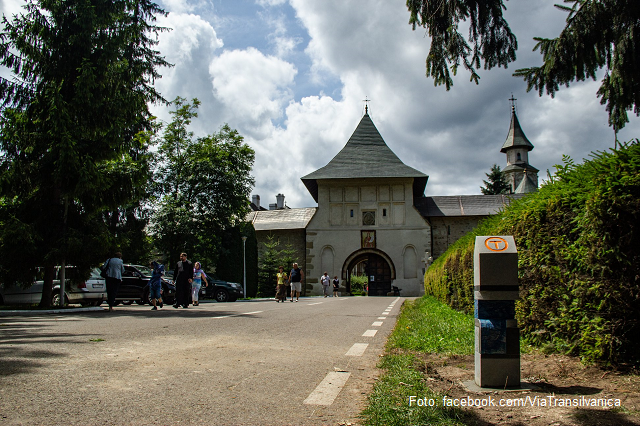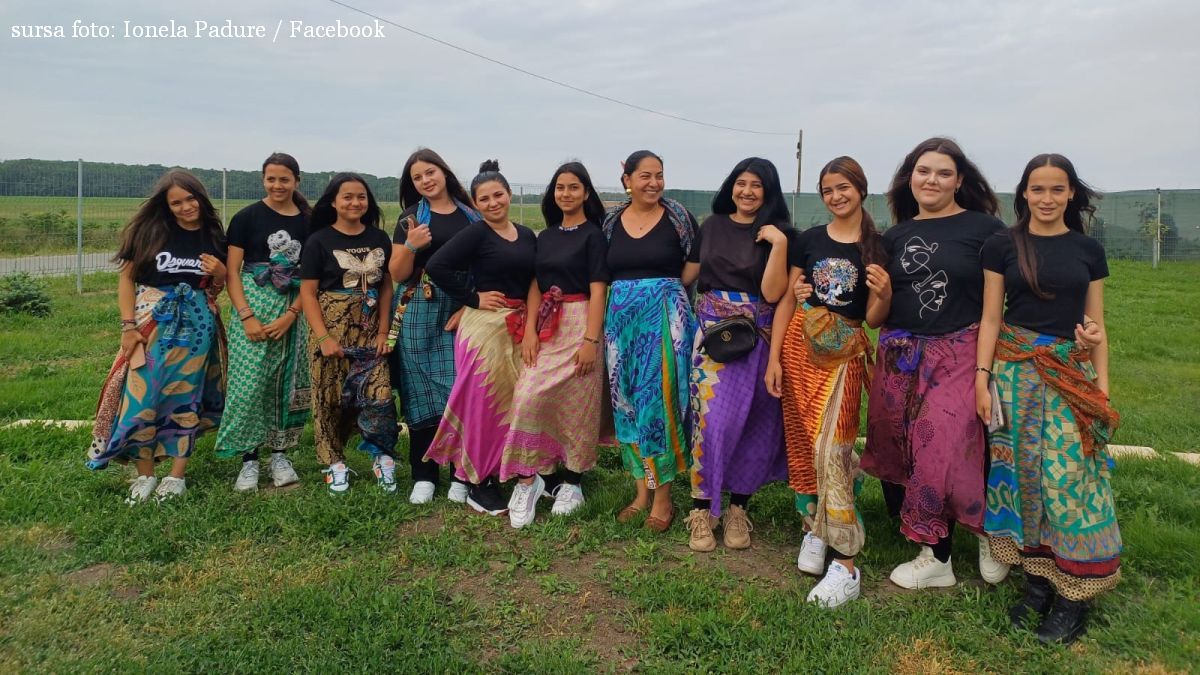Via Transilvanica and the Romanian identity
A long-distance trail crossing Romania

Roxana Vasile, 23.08.2023, 14:00
“Tasuleasa Social” is an NGO that has been founded more than 20 years ago. Its care and concern for the environment, for culture, go hand in hand with the organizations social involvement. Having its headquarters on a mountain peak, in Eastern Carpathians Tihuta Gorges, “Tasuleasa Social” predominantly focused on volunteering programs targeting the preservation of nature or the promotion of the national cultures richness and diversity.
“Tășuleasa Social” has helped youngsters understand that doing volunteer work comes out as something normal, that mentalities can be changed through education or that the civic spirit is crucial for the community. “Tasuleasa Social” has made a name for itself through such activities as afforestation, in a country where, in utter defiance of the law, logging has quite often been carried chaotically. Youngsters learned how to plant saplings, they learned about the role of the trees and the forests, but also why it is necessary for river beds to remain clean or what the solutions were for the selective collection of waste. The wide range of Tasuleasa Socials activities also includes the social undertakings, carried in support of several underprivileged communities.
However, the epitome of Tasuleasa Socias category of activities is their most recent and project, a wide-scope undertaking, at that, Via Transilvanica. Were speaking about a circuit that can only be taken by foot on horseback or by like. The road starts from Bukovina, from Romanias picturesque north-western part it crosses the country through Transylvania and ends on the banks of River Danube, in Drobeta Turnu-Severin. In brief, Via Transilvanica is an audacious itinerary, with 1,400 kilometers marked with milestones and signposts. According to the organizers, those who are going to take that itinerary are sure to discover, or rediscover, Romania as it really is.
The president of “Tasuleasa Social”, Alin Useriu, has been a guest on one of Radio Romanias programs. First, he spoke about how the idea of Via Transilvanica came about:
“Tășuleasa Social” is a label including the word “social” and we have been keen on finding a solution to pump fresh blood into the villages that were about to be deserted. Thats what we had in mind when we got it all started! Then, when we came up with the proposal and we had the early signs of a project that was so good, we had a closer look and saw that the number of people taking up long-distance trekking routes saw a hundredfold increase…Pacific Trail, Appalachian Trail, Camino de Santiago…That particular kind of tourism was a great party Romania can now take part in, the party of sustainable tourism, which, if you ask me, is an incredibly interesting and healthy trend. Romania is a country which is very well prepared for that! It is incredibly well-stocked, and competitive, as regards the rural heritage, the natural heritage, just like any other country in the world, with no great effort, on our part, to do something we cannot do. I think that, as we speak, we have a 1,400 km-long national infrastructure, which can be a landmark project, mainly for Eastern Europe. And, perhaps, all things going well and provided the Useriu brothers can take it beyond intention level, worldwide it is sure to be one of the important trails. “
For four years and a half, Alin Useriu and his brother, Tibi, an endurance runner and an ultra-marathonist, had more than 10 thousand volunteers on their side, in their great adventure dubbed Via Transilvanica. As of late, the AFP wrote that, coming put of nowhere, this trail pumped fresh life into the Romanian depopulated villages, being an unprecedented initiative in eastern-European Romania, which despite its strong economic growth, has never ceased to face an exodus of the younger generations and the void they leave behind them, especially in the rural areas with breathtaking landscapes. However, we might add that there were also Romanias youngsters who, through volunteer work, have as of late dedicated themselves to revitalizing that rural space, which was so very special.
Alin Useriu:
“We have been working for two years now, we have as many volunteers as you can imagine, as society has already been drawn by thatform of manifestation, by this particular way of life, and “Tășuleasa Social”, purposefully working in so many fields and us trying really hard to do our best, we have obviously gained many adepts and fans with whom we are no longer afraid to propose all sorts of projects. So I think that our way of life, our way of doing our job brought us, like, more than 150,000 fans who participated in our activities. Yet we have a hardcore body of volunteers, made of several hundred people, who are ready to travel places with us and do the things the right way.”
The very moment you start your walk around the country, that including Via Transilvanica, somewhere bread is baked, elsewhere a tumbledown house can have a new destination, a heritage item can be saved or a tree can be cut down legally and sustainably…says Alin Useriu, who also admitted there was still a lot more to be done until Romania was permanently put on the world map of the countries with long-distance trails. Alin Useriu:
“We have been celebrating the finalizing of our project internally, in our team, then we realized that, in fact, that was the beginning, so we changed the means of communication completely. Therefore, in the coming years, we shall be on that kind of path, the quality, the safety, the maintenance path. The domestic and the international promotion are very, very important. We need to take that step together, we need to take that path to see what it is all about, perhaps to create that new kind of tourism, the active tourism, which, in Romania, has a tremendous potential. So we still have this project, but fear not, we have a great many news project ideas. We have always tried to be one step ahead of all the other organizations, and everything has played in our hands, so far. “
Trekkers can take the entire length of Via Transilvanica in a couple of weeks, or they can take it only partially, according to everyones strength and wish. And we should overlook the fact that, for many people, Romanians including, that could be an initiatic road they can take through Romanias nature, culture, history, ethnicity, traditions and cuisine, in one words, through Romanias identity. (EN)






























